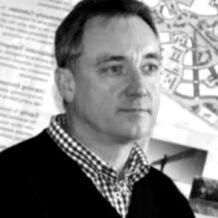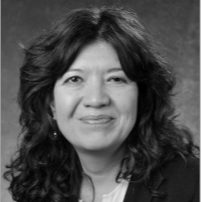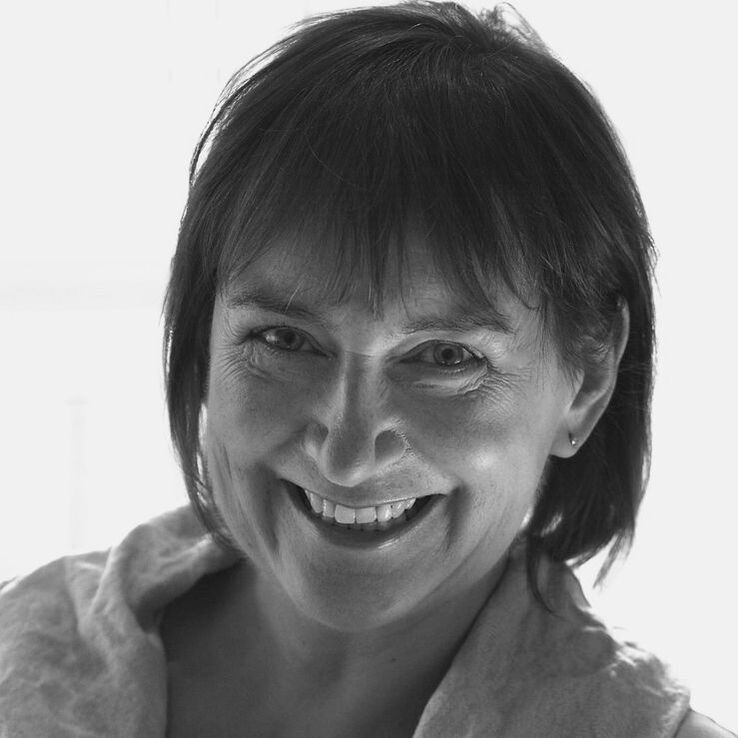OUR PEOPLE
Dr. Layla McCay
|
Layla McCay is the Founding Director of the Centre for Urban Design and Mental Health. A psychiatrist, international public health and health systems specialist, and adjunct professor of international health at Georgetown University, she set up UD/MH in 2015 to help increase interest, knowledge sharing and translational research to improve population mental health through smart urban design. Trained at the Maudsley Hospital and Institute of Psychiatry in London, Layla has a keen interest in the determinants of mental health, and a passion for the built environment and helping people love the places they live.
@LaylaMcCay and @urbandesignmh |
Erin
|
Erin Sharp Newton, M. Arch serves as the current Director of UDMH, and has been a Fellow since 2016. She also serves the Journal as a Section Editor. Erin is also the current President for AIACNJ.org. Erin completed her post-graduate work at the UCLA in the School of Architecture and Urban Planning with a Master’s in Architecture and Master’s in Design from Domus Academy in Milan, Italy, where she worked as a Creative Director for Cibic & Partners with Aldo Cibic. Her core project "A Family Business", and "Citizen City" (creating hybrid social environments), grew through Cibic Workshop and other venues, including the Milano Trienalle. Her work has been featured at the Royal College of Physicians in London, Healthy Cities, European Healthcare Design, published in our Journal, Domus, Interni Magazine, and Philips Solid Side, and others. She has served juror/ critic/ mentor at major architecture and design schools such as the Art Institute, Cornell University, Drexel University, Kean University, Moore College, NJIT, Sci-Arc, UC Fullerton, UCLA, Milan Politecnico, Venice Politecnico, and Woodbury University.
@ESharpNewton |
FELLOWS
Kevin Bennett
|
Kevin Bennett, PhD, is a Teaching Professor of Social/Personality Psychology at The Pennsylvania State University, Beaver Campus. His research--psychological science at the intersection of urban design and mental health—addresses three big questions: (1) What are the meaningful ways in which people differ in personality, emotion, and decision making across physical spaces? (2) What are the root causes of these individual differences? (3) What are the important outcomes of all this? Dr. Bennett earned a PhD in Psychology from City, University of London UK and degrees from University of Michigan (BA, Psychology) and the University of New Mexico (MS, Experimental Psychology). Bennett is the coordinator of the psychology program at Penn State Beaver and runs the Personality and Human Performance Lab (PHPL) on campus.
@KevinBennettPhD |
Rhiannon Corcoran
|
Rhiannon Corcoran is a Professor of Psychology and Academic Director of the Heseltine Institute for Public Policy and Practice at the University of Liverpool. Her scholarly record into the psychological and social determinants of mental health and wellbeing is internationally recognised. With her partner, Graham Marshall, she founded the Prosocial Place Programme in 2012, aiming to understand and address the pernicious impacts of low-resource urban environments on health and wellbeing. Together with other colleagues, their ambition is to provide the mental health and wellbeing evidence that can underpin urban design practice and place stewardship. Rhiannon also overseas the Community Wellbeing evidence programme of the UK's What Works Centre for Wellbeing which will identify and disseminate the highest quality evidence about factors that are most important to the creation of good community well-being.
@rhiannoncor |
Alice Covatta
|
Alice Covatta is an Italian Visiting Researcher in Architecture and Urban Design at Keio University in Tokyo. She has been granted by Japan Foundation Fellowship with the investigation entitled ‘Tokyo Playground: the Interplay between Infrastructure and Collective Space’. Her focusses of investigation are spontaneous urban scenarios aimed at the improvement of the livability of public spaces and spaces that have potential to become a meaningful part of a bottom-up design process that enhances community and generational cooperation. Her works have been exposed at MAXXI Museum in Rome and Venice Biennale, and recently won the "Europan14" for the city of Neu-Ulm in Germany. She is correspondent in Japan for Domus and collaborator of Warehouse TERRADA in Tokyo, dealing with the promotion of art projects in between Japan and European countries
|
Colin Ellard
|
Colin Ellard is a cognitive neuroscientist at the Department of Psychology at the University of Waterloo in Canada, and Director of its Urban Realities Laboratory. He works at the intersection of neuroscience, experimental psychology, and architectural and environmental design to understand the psychological impacts of places, on which he has published numerous peer reviewed research papers, and written two books: Places of the Heart: The Psychogeography of Everyday Life (2015, Bellevue Literary Press) and You Are Here (2009, Doubleday). His current research interests focus on urban stress, wellbeing, and environmental appraisal. Current work: Psychology on the Street.
@whereamInow |
Daniel Gan
|
Daniel Gan is an award-winning urban designer and mental health researcher at the Gerontology Research Centre at Simon Fraser University, Vancouver. He conducts research at the intersection of planning, psychology and gerontology to improve the cognitive health of older adults living in community. He developed a Transdisciplinary Neighbourhood Health Framework which is the basis of current work on neighbourhood cohesion, loneliness and dementia. He has served as a managing editor of the Journal of Population Ageing, University of Oxford, prior to UD/MH. He carries out age-friendly interventions in neighbourhoods via the nonprofit: Healthy Ageing in Place .
@daniel_gry |
Sophie Gleizes
|
Sophie Gleizes has worked in the fields of urban food policy and urban geography in France and Russia. A graduate in Humanities and Social Anthropology (Paris), she also holds a Masters degree in Nature, Society and Environmental Policy from the University of Oxford, focused on urban traumascapes. She currently works as a trainee at the European Commission (Directorate-General for Health and Food Safety). At UD/MH she focuses on how urban planners, designers and policymakers can engage with places associated with a community’s traumatic experiences, and how to work with the complexities of memory, identity, and resilience to enrich the experiences of people's urban environment.
@SonechkaGleizes |
Jan Golembiewski
|
Jan Golembiewski is a registered architect, serves as Adjunct Professor in the Faculty of Creative Industries at Queensland University of Technology in Australia, and is a leading researcher in architectural design psychology. His PhD traces phenomenological experience back to the neurological mechanisms that cause them. Jan’s research experience places him at the centre of current thinking about design for health and wellbeing. He is on the editorial board of three academic journals and has guest edited a special edition on ‘Designing the Psychiatric Milieu’. Jan regularly judges the International Academy Awards for Design and Health. Key writings.
|
Oliver Gruebner
|
Oliver Gruebner is a health geographer who combines quantitative methodologies from geography and epidemiology to assess population health risk. He earned a PhD in geography from Humboldt-Universität zu Berlin, Germany. He works at the Department of Geography and at the Epidemiology, Biostatistics, and Prevention Institute (EBPI) at University of Zurich, Switzerland. Oliver serves as the director of an international summer school program on spatial epidemiology and leads the newly created SSPH+ course on Big Data in Public Health. Furthermore, he is a research fellow with the Competence Centre for Mental Health (CCMH) at the University of Zurich.
|
Georgina Hosang
|
Georgina Hosang is a Senior Lecturer in Mental Illness & Chronic Diseases at the Centre for Psychiatry, Wolfson Institute of Preventive Medicine, Barts & The London School of Medicine & Dentistry, Queen Mary, University of London. She is project leader for the London Mood Project, an innovative research project using mobile phones to identify associations between mood and aspects of the built urban environment. She is based in London.
@DrHosang |
Tracy Marciano
|
Tracy Marciano, a former Executive Director of an international brand marketing firm in New York to study historic preservation and landscape design. Tracy holds a Masters degree in Sustainable Planning and Development from Pratt Institute of Architecture and attended Columbia University for graduate studies in landscape design for urban environments. She has an interest in urban design for mental health, particularly the relationship between nature access, colour theory, fragrance, sound and other sensory elements. The concept of using “urban acupuncture”, or small pockets of improvements in design and planning to promote wellness is at the forefront of her current research. She works for CJS Architects in New York State focused on historic rehabilitations, master planning and sustainable development in urban centers and postindustrial sites.
@NewPreservation |
Graham Marshall
|
Graham Marshall studied landscape architecture and urban design. He worked with several leading design firms in London, UK, before joining Liverpool Vision as Founding Director in 1999. He was responsible for the creation and successful delivery of the Liverpool City Centre Strategic Regeneration Framework, winning many awards for this work. Establishing Maxim Urban Design in 2004, Graham returned his focus to towns and communities, acting primarily as a design advisor to public clients. At the same time, he was an Urban Design Advisor to the London Development Agency, and an active member of several regional Design Review Panels. He continues his pro bono enabling work as a Built Environment Expert with Design Council CABE. In 2013, Graham established the Prosocial Place Programme, partnering with researchers in Liverpool and Middlesex Universities to develop an integrated evidence base approach to urban planning, design, development and stewardship. He has transformed Maxim into a social enterprise, Prosocial Place, to implement this knowledge-based approach to urban design. He is a Visiting Senior Research Fellow at the University of Liverpool Institute of Psychology Health and Society.
@prosocialplace |
Robin Mazumder
|
Robin Mazumder is a doctoral candidate in cognitive neuroscience at the University of Waterloo, where he is studying the psychological impacts of urban design. Using sophisticated wearable technology and immersive virtual reality, he examines how people experience cities. His interest is inspired by his love for cities as well as his front line experience working as a mental health occupational therapist. Robin’s research is funded by the Vanier Canada Graduate Scholarship, Canada’s most prestigious doctoral award. Always striving for a healthier, happier, and more inclusive city, Robin is also a passionate community builder. His advocacy and research and has been featured in numerous outlets including the BBC, Vice Magazine, CBC , Canadian Geographic, Canadian Cycling Magazine, University of Toronto Magazine and University Affairs. Avenue Magazine named him one of Edmonton’s Top 40 under 40 in 2014. Robin is also an accomplished keynote speaker sought out internationally to give talks on cities, well-being and mental health.
@RobinMazumder |
Agnieszka Olszewska-Guizzo
|
Dr Agnieszka Olszewska-Guizzo is the Current Editor-in-Chief for JUDMH, and is both President and founder of NeuroLandscape. She has a PhD in Landscape Architecture and Urban Ecology from the University of Porto (Portugal), and is a researcher at the Faculty of Medicine at the National University of Singapore. She is interested in the relationship between the characteristics of the natural and built environment and the mental health and well-being of city dwellers and people suffering from mental disorders. She has applied psychophysiology tools, including neuroscience, to study changes in brain wave oscillations in people exposed to various types of landscapes. She introduced and operationalized the concept of Contemplative Landscapes and proposed a psychometric tool (Contemplative Landscape Model), which is a quantitative scale for assessing and classifying views, based on their potential mental health benefits through passive observation. In her work, she strives to implement scientific research into practical actions to promote mental health in cities.
@neurolandscape |
Itai Palti
|
Itai Palti (Bsc. MArch) is a practicing architect, educator, and researcher. His work focuses on designing with the human experience in mind. A graduate of The Bartlett School of Architecture in London, Itai is an adjunct faculty member at the Bezalel Academy in Jerusalem. His built and theoretical work has been published internationally, including ‘A Manifesto for Conscious Cities’ in The Guardian, part of research in collaboration with leading figures in the behavioural and brain sciences. At UD/MH, Itai will focus on exploring how cities can develop an awareness to human needs and desires and act upon opportunities to benefit people's mental health.
@ipalti |
Nélida Quintero
|
Nélida Quintero is an environmental psychologist and licensed architect based in New York. She holds a PhD in Environmental Psychology from the Graduate Center of the City University of New York, a Master's in Architecture from Princeton University and a Master's in Fine Arts from Parsons School of Design. She has taught at Hunter College and on the Parsons School of Design Certificate Program, and has designed and managed interior architecture projects in the US and Latin America. She is an American Psychological Association NGO Representative at the United Nations. Her research interests are broadly focused on the interactions between people, behavior and the physical environment, in particular in relationship to health, well-being, culture, new media and gender.
|
Jenny Roe
|
Jenny Roe is the Mary Irene DeShong Professor of Design and Health and the Director of the Center of Design and Health at the School of Architecture, University of Virginia in the US. She is building research to show how design of the built environment can maximize human health, quality of life and wellbeing. A previous landscape architect turned environmental psychologist, she has expertise in the relationship between people and place, particularly restorative environments and mental wellbeing. Before her move to the US, she worked alongside environmental scientists and health professionals as a Research Leader in Human Wellbeing and Behavior Change for the Stockholm Environment Institute (SEI), University of York, exploring how best to build sustainable, resilient and healthy cities. Her research has pioneered methods for quantifying the health benefits of good neighborhood design, using physiological indicators such as cortisol – the stress hormone – and mobile electroencephalography (EEG) to explore emotional activity on the move in cities, a form of ‘neuro-urbanism’. Much of her research explores environmental inequities – and the relationships with health disparities - in economically disadvantaged communities, including racial/ethnic minorities, children and teenagers, the elderly, and people with chronic health conditions including those with severe mental health problems. Prior to her current career in academia, she was Principal Landscape Architect in a multi-disciplinary architectural practice in London called Sprunt that specializes in social housing, educational and healthcare design. Publications, blog postings and films here.
@jennyjroe |
Greg Rybarczyk
|
Greg Rybarczyk is an Associate Professor of Geography at the University of Michigan-Flint. He holds an affiliate appointment with the Michigan Institute for Data Science. He has over a decade of experience utilizing geospatial technology to analyze transportation, urban, and environmental phenomena within government, non-profit, and private sectors. Currently, his research, teaching, and service is focused on active transportation and urban design, and how this relationship influences public health. Greg’s passion for examining human mobility and access is also evidenced in his past research projects on: mode-choice, wayfinding, Big Data, neighborhood health, food equity, and urban planning. He serves on the board of directors for the International Professional Association for Transport & Health (IPATH); is an active member of the City of Detroit’s Regional Transit Authority (RTA) Citizens Advisory Committee; is an editorial advisor for the journal: Cities and Health. Dr. Rybarczyk has also worked alongside several national and international organizations on promoting urban health and active living. For instance, Greg has assisted the Crim Fitness Foundation, Safe and Active Genesee for Everyone, the Higher Institute on Territorial Systems for Innovation (Italy), and was a visiting scholar at Bergische University Wuppertal (Germany).
www.grybarczyk.com @GregRybarczyk |
GET INVOLVED
Information about becoming a Fellow or Associate is available here.
OTHER
Logo design by Alan Benzie @AlanBenzie
© 2024 - UDMH



















